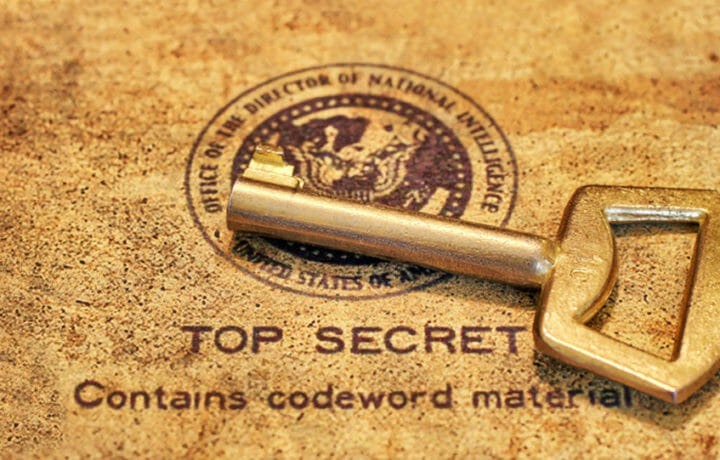Getting a security clearance isn’t as easy as simply filling out a bunch of forms and waiting. It can be a nerve wracking experience for individuals who are excited to pursue a government or military career – but nervous about specific issues or past mistakes. One of the many security clearance resources at ClearanceJobs.com is our repository of articles addressing security clearance issues. In the comments threads of those articles, a few common questions frequently pop up. Here are the top five frequently asked:
1. I did drugs/got a DWI/was arrested. How long until I will be able to obtain an interim security clearance?
Many security clearance applicants ask questions about how a single (or perhaps a series) of ‘minor’ events or mistakes will affect their security clearance chances. A disproportionate number of questions we receive on our site involve nervous pot smokers who did, in fact, inhale while in college and are now considering a career with the government. But similar questions involve an arrest, DUI, etc. The reason these questions are asked is because the SF-86 is clear – you must list drug use, arrests, or alcohol or firearms related offenses that occurred within the past seven years (or whatever time frame is included in your security clearance application).
If more than a year has passed since the incident and it is not indicative of your current behavior, your chances of obtaining a clearance are good. When it comes to obtaining an interim clearance, the likelihood is much smaller. Passage of time will be a major factor in whether or not you’re able to obtain an interim clearance, and get to work right away. Put the offenses as far behind you as possible before you apply for a security clearance job.
2. I have a pretty clean record, but I have approximately $10,000 in delinquent bills – how will that effect my security clearance application?
Financial issues are by far the number one cause of clearance denial and revocation. And for good reason – when you look back into the annals of spy history, financial reward is a common factor in sell-outs. If you have delinquent debt – and have made absolutely no effort to repay your debt – your chances of obtaining a security clearance are small. The cause of the debt will be considered (with student loans or medical bills making your case a little more sympathetic to the human reading your case), but your role in ignoring it is the ultimate issue. If you have debt and need a job which requires a clearance, take immediate steps to begin repaying your delinquent bills, seek credit counseling, and make sure the debt does not point to a pattern of irresponsibility. You can still obtain a clearance, but you’ll need to put in some effort, first.
3. I have a single minor offense on my record. Will I be able to obtain a security clearance?
Imagine whatever scenario you want – maybe it’s a messy divorce, or a domestic abuse charge that was dropped. Often these personal questions surround some type of misconduct at work. (Having to list every employer – along with contact information – really makes you think twice about quitting you first job after college with an email to the whole company stating: ‘Take this job and shove it.’) Incidences you may not have thought of for a decade are suddenly giving your nightmares and causing you to post questions to a security clearance forum in the middle of the night. ‘Asking for a friend – will taking Adderall four times in college affect my clearance chances?’ This question is very similar to the first. Passage of time – along with the person you are today – plays a pivotal role in your clearance chances. Be sure to use the ‘additional comments’ section on your clearance application to explain yourself, and be prepared to back up the ‘whole-person‘ concept of why that misbehavior isn’t who you are today.
4. I have been waiting on my security clearance for 6+ months. How can I get information about my clearance status?
Four-to-eight months may seem like forever, but it’s the current standard for the fastest security clearance determinations. Some clearance applicants are literally waiting years for a final clearance determination. If you find yourself in the security clearance black hole, your best bet is to contact the security officer who processed your clearance. The person who submitted your paperwork is also your best point of contact for status updates.
Sometimes your FSO may be able to connect you with a representative from the Department of Defense Central Adjudication Facility (DoD CAF).
5. I believe I held a clearance while I was in the military. Do I still have one now?
This is one of the most frequently asked questions we get through our Facebook page. Think it’s impossible to NOT know if you had a security clearance or not? Think again. Service members put in for a clearance when they sign-up for service or entry-level professionals to the government may have been so overwhelmed by the amount of paperwork they signed they honestly don’t know if they obtained a security clearance. Add to that the issue of whether or not an application was finally adjudicated, and there is a lot of ambiguity in the process. Fast forward a year or two (or more) down the road, and you may find yourself asking – ‘hey, did I ever get that clearance?’
If that sounds like you, your best bet is to submit a FOIA or Privacy Act request (or just contact your former employer or security officer). For info on making a request through the government, click here.




